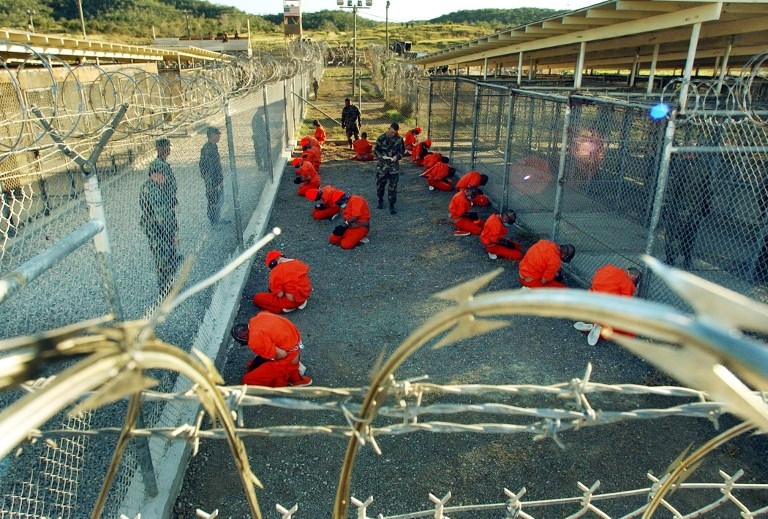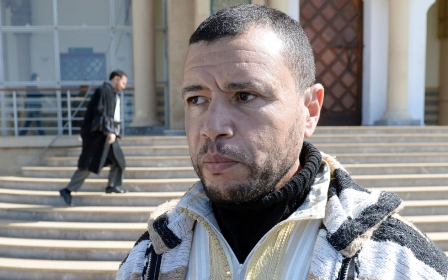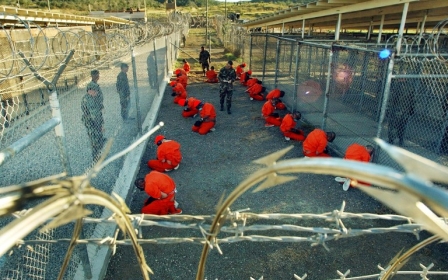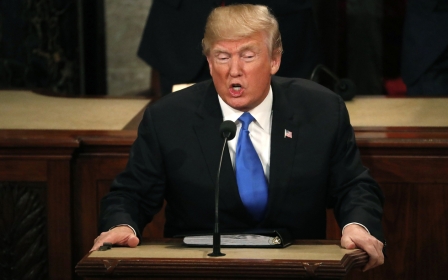US frees first Guantanamo prisoner under Trump presidency

The United States announced on Wednesday the first transfer of a prisoner from the Guantanamo Bay detention centre since Donald Trump was elected, lowering the prisoner population at a facility the president has signalled he would like to repopulate.
The US military said Ahmed Muhammed Haza al-Darbi's transfer to Saudi Arabia brought the prisoner population down to 40. The last time a prisoner left the facility in Cuba was on 19 January 2017 - the day before Trump was inaugurated.
Reuters reported in March that Darbi's transfer was advancing.
Commander Sarah Higgins, a Pentagon spokeswoman, noted that the transfer was provided under the terms of a 2014 plea deal, which will allow al-Darbi to serve out the rest of his 13-year sentence in his home country.
"The United States coordinated with the government of the Kingdom of Saudi Arabia to ensure the transfer took place in accordance with established standards for security and humane treatment," Higgins said.
The deal included a provision that after four more years at Guantanamo, he could serve the remainder of his term at a luxurious rehab centre in the Saudi capital Riyadh, where former extremists are given counselling and ideological detoxification.
But news of the move came as the Pentagon said Defence Secretary Jim Mattis had sent the White House guidance on how Guantanamo might again start receiving new inmates - an oft-stated goal of Trump.
Darbi entered a plea deal in February 2014 that saw him admit to planning, aiding and supporting an attack on the MV Limburg, which killed a Bulgarian sailor, injured a dozen and caused a large oil spill in the Gulf of Aden.
The prison, opened by Republican President George W Bush to hold terrorism suspects captured overseas after the September 11, 2001, attacks, came to symbolise harsh detention practices that opened the United States to accusations of torture.
Trump's Democratic predecessor, Barack Obama, reduced the inmate population to 41 from 242, but fell short of fulfilling his promise to close the jail before leaving office last year.
In contrast, Trump pledged during his campaign to repopulate the prison, saying he wanted to "to load it up with some bad dudes".
Trump signed an order in January to keep the detention centre open and hinted, in his State of the Union address to Congress this year, that Islamic State (IS) group or al-Qaeda militants could be added to the prison population.
Trump also asked the Pentagon to re-examine the US military's detention policy.
To that end, the Pentagon said on Wednesday it updated its guidance on criteria for transferring new detainees to Guantanamo Bay.
"This policy provides our warfighters guidance on nominating detainees for transfer to Guantanamo detention should that person present a continuing, significant threat to the security of the United States," said Higgins.
A White House National Security spokesman confirmed that it had received the new detainee criteria.
"We have no further comment at this time," the spokesman said.
New MEE newsletter: Jerusalem Dispatch
Sign up to get the latest insights and analysis on Israel-Palestine, alongside Turkey Unpacked and other MEE newsletters
Middle East Eye delivers independent and unrivalled coverage and analysis of the Middle East, North Africa and beyond. To learn more about republishing this content and the associated fees, please fill out this form. More about MEE can be found here.




